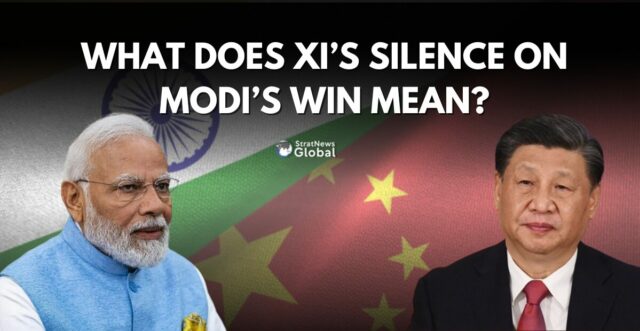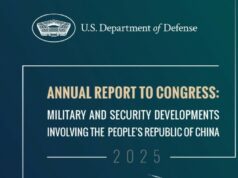In 2019, Chinese President Xi Jinping was quick to congratulate Prime Minister Narendra Modi on his re-election, and even commended the efficient handling of the elections.
This year, however, President Xi has remained silent, letting Chinese Premier Li Qiang, the second-most powerful individual in China do the job, and the People’s Daily, China’s largest newspaper group, prominently featuring this gesture on its front page.
In his message, Li said the sound and steady development of China-India relations is not only conducive to the well-being of the two peoples but also injects stability and positive energy into the region and the world. China is willing to work with India to push forward bilateral relations in the right direction, he added.
Xi Jinping’s Silence
While President Xi Jinping remained silent on India’s elections, he has been vocal domestically.
On the same day Li congratulated Modi, Xi emphasised the importance of enhancing China’s corporate system and promoting an open environment for scientific and technological innovation. This shift in focus might reflect the current nuances in China-India diplomatic relations following recent tensions.
Some analysts feel the absence of a congratulatory message from President Xi following the 2024 elections might also signal a cooling in diplomatic relations, potentially linked to recent tensions. Notably, on June 5th, China expressed strong disapproval over Modi’s response to a congratulatory tweet from Taiwan’s new President.
This incident, viewed by China as a breach of its diplomatic norms, reflects deeper strains in the China-India relationship and could be a factor in Xi’s decision to refrain from extending customary congratulations this year.
After his recent election as Taiwan’s President, Lai congratulated Indian Prime Minister Narendra Modi on social media, looking forward to enhancing the Taiwan-India partnership in trade, technology, and other areas for regional peace and prosperity.
Modi responded warmly, anticipating stronger economic and technological ties.
China however, condemned this exchange on June 6, insisting that New Delhi disregard Taiwan’s “political calculations” and affirm its stance that Taiwan is a part of China.
Clips from the Galwan incident are resurfacing on Chinese Social Media
Separately, clips from the Galwan incident are resurfacing on Chinese social media, and trending with the hashtag #Only by reclaiming South Tibet and Ladakh can the motherland be fully unified.
This hashtag, popular on Weibo for a while, is associated with numerous anti-India posts, and has garnered over 30 million views so far.
It was used on a June 8 post on Weibo, which said: “If Modi the sage says India can develop relations with Taiwan, then we can also develop relations with the Sikh independence movement.”
Supporters of the CCP, referred to as “Little Pinks,” believe Modi will take a more assertive stance against China in his new term. A widely trending hashtag on Weibo suggests that Modi might use the “China Card” more aggressively.
In an opinion piece by Meng Yan on Netease, the article titled “Meng Yan: Modi, who won the election, declares intentions to compete with China and establish closer ties with Taiwan – Utopia,” critiques Modi’s economic strategies.
It argues that despite his focus on manufacturing, India’s growth in this sector has lagged compared to the non-manufacturing economy, highlighting deficiencies such as inadequate infrastructure and a weak industrial foundation. The article also notes Modi’s use of religious and democratic rhetoric to win support, especially in Hindu-majority areas.
It goes on to suggest that Modi’s electoral performance might lead him to revert to using the “China Card” to distract attention and solidify his position domestically, a strategy that could strain India-China relations.
It also warns that India may increasingly challenge China on issues like border disputes and ties with Taiwan.
Whether or not Xi’s silence over Modi’s win has nuances will probably be clearer during the SCO summit in Astana, Kazakhstan, in early July, when the two leaders are widely expected to have a “pull aside.”
Research Associate at StratNewsGlobal, A keen observer of #China and Foreign Affairs. Writer, Weibo Trends, Analyst.
Twitter: @resham_sng





